|
My name is Clare Roberts and I was chosen as one of the recipients of a fellowship with MISS to attend the Oceans Research Institute’s internship during July 2022 in Mossel Bay, South Africa.
I am a 21-year-old woman of colour living in Cape Town, South Africa. I am currently in my third year of study at the University of Cape Town where I major in Oceanography and Marine Biology. As a young woman, I quickly learnt what it meant to pursue a science career. Not only having to fight the patriarchal views of society which push women down every day, but studying science in a country still divided by the deep roots of historic racism meant that I’d have to deal with not only the economic effects of racism but also the socio-political influence that would make many spheres of science elitist and difficult to access. The majority of my time at university thus far has been spent under Covid-19 lockdown. During this period, I not only questioned my abilities as an aspiring scientist but also if a career in marine science, which I had been working towards my entire life, was right for me. At the end of almost two years of lockdown, with limited experience in the marine field, I was encouraged to research internship opportunities in order to gain more practical experience in marine science. In these explorations, I was soon discouraged to find that these opportunities were inaccessible to me from an economic point of view. Included in these was the Ocean Research Institute (ORI) internship, which I was particularly drawn to for I had little experience with shark research. Thus, I was beyond elated when I saw the fellowship opportunity and collaboration between MISS and ORI. Coming into this experience, I hoped not only gain practical experience but also to answer the question of whether the field of marine science was one that I wanted to be in and belonged in. Despite being so close to one of the largest great white shark hubs, I had previously had few encounters and chances to truly understand these majestic creatures. To be able to learn more about sharks in the country of my birth would not only be incredibly illuminating from a career perspective but also allow me talk with more conviction as an aspiring marine scientist about great whites which seem to be shrouded by a veil of fear among the generally population. The month of July did not disappoint; it was filled with out of this world experiences, challenges that expanded my capabilities as a scientist and inspiring conversations. On our first chumming trip I was granted the spectacular experience of seeing my first great white shark up close and personal. This was made particularly exciting by the fact that great whites had not been seen for over a month in Mossel Bay. Seeing the absolute majesty and power of the great white in person has allowed to truly appreciate the value of field exposure, as no number of lectures could have ever prepared me for the emotions I felt in that moment; all awe, fear, love. On subsequent trips I found it very interesting that every single shark we encountered seemed to have a completely different ‘personality’, so much so that we could at times tell sharks apart solely by distinctive behaviour alone. The nuances of this experience alone were enough to make this internship worthwhile but combined with practical scientific research and it became truly invaluable. Towards the end of the month, we were given the opportunity to be involved in a dolphin necropsy- something that I had only watched videos on before. We were required to measure different portions of the body, collect samples of organs and check for parasites internally and externally. Talking to the citizen scientists, who have a network of volunteers along the coast of South Africa, and perform similar necropsies on dolphins and cetaceans, I learnt the importance of this work to further our understanding of the interactions (parasitic, mutualistic etc.), predation pressure and important food sources associated with these marine animals. Needless to say, this unique experience was definitely one of my highlights of the month! The day I was on the data shift when a super-pod of bottlenose dolphins was in the bay marked one of the most challenging experiences I have had as a young scientist. On this shift I was required to record the observable, above-water behaviour of individual dolphins; including any breaches, social calls, travelling interactions and feeding behaviour, among other things. This was made particular difficult by the sheer number of dolphins surrounding the boat which I needed to keep track of. In overwhelming moments, I learnt quickly that keeping a calm disposition under pressure is vital and to communicate my struggles to my teammates so that they could help me in these moments. I will always consider talking to the field specialists and other interns about their experiences in the marine field as some of the most inspirational and influential conversations I have ever had. The field specialists, despite having much more experience in this field than me, made me feel worthy of being a scientist. By conversing with the other interns about their personal, unique experiences in the field of science and of different parts of the world, my mind was expanded to many new possibilities and paths that my future career in science could take. It is quite difficult to sum up all that I have learnt, felt and overcome this month. One clear feeling is the propelling force of motivation. Motivation to continue to study towards a career in marine science. Motivation to overcome the bonds that try to hold me back as a woman of colour. The Ocean Research Institute made me feel welcomed and accepted into the field of shark science which was at first strange and new to me. I come away from this experience with a group of people, from the field specialists to the interns to everyone I met on the way, that made me feel like I belonged there. With this experience in my pocket, I hope to use the lessons that I've learnt over this past month to inspire and empower other woman of colour to achieve their goals and aim for their dream careers. I would like to conclude with a huge thank you to MISS for allowing me this incredible opportunity!
0 Comments
Where do I even start? Should I start when I was applying for MISS scholarship? Should I start from my first day interning at Ocean Research or should I start when I was enrolling for my undergraduate studies? Because if it wasn’t MISS scholarship and Ocean Research, I would still be feeling lost and clueless about the career (Marine Science) I chose.
Lost and still enrolled in marine science Everyone used to ask me “what do you want to be and why did you choose marine science”? I honestly, did not have answer until last month (July 2022). And I think it was because I grew up inland, and I get to know ocean when I found myself enrolled in Marine science. How? I still don’t know. There was a time I thought of changing career, but I just told myself “Let me finish Diploma: Marine Science first and I will see what will happen”. I finish diploma and again, I still found myself enrolled in Advanced Diploma: Marine science, still lost and not sure if this is what I want to do. “I guess I had hope that one day I will fell in love with ocean, and it just happen”. A life changing opportunity Earlier this year (2022) I was on Linked-In, and I came across MISS scholarship. Although I met requirement, I had doubts about applying because I am fulltime student (currently enrolled for Advanced Diploma: Marine Science) and I am just an average student. But I end up applying and I was selected. It took time for me to believe that I am really selected because of my fears e.g., “if I will fit in”. Ocean research internship experience Still can’t believe I saw a Great white shark on the first day of interning at ORI. First few days was challenging but during the process of learning every day and stepping out of my comfort zone, I gradually become more confident in myself, my abilities and my contribution. Throughout the program, I was involved in different that includes study, tracking and collection of data of Great white sharks’ and Cetaceans (Dolphins); Responding to Marine Mammal Stranding; Surveying the plastic pollution at the beach; Sea fishing; and Conducting survey on the intertidal (studying the community of intertidal species). My highlight experience was “witnessing the tagging of the Great white Shark. Interning at ORI was one of unforgettable and rewarding experience. I am so grateful to meet incredible, smart and motivating field specialist (Lacey, Emmanuel and Charley). I got to learn how to communicate more effectively, collect scientific data using different instruments (e.g., BRUV, photo ID), and working in team. In addition, I got opportunity to improve my personal and professional skills and I believe these valuable skills have boosted my professional skills and prepared me for my future career. Now, I confidently say what I want to be and which field of marine science I will be further my studies on. Thank you, MISS and ORI, for giving me this opportunity. |
Archives
May 2024
Categories |
About missMISS provides a community and funded opportunities for gender minorities of color who wish to enter the field of shark sciences. We aim to show that there are many gender minorities of color succeeding in and interested in this field.
We fundraise and apply for grants to create paid opportunities to attempt to knock down the financial barrier into shark sciences. We encourage other organizations in our field to do the same. |
Jump to:Our Story
Become a Member Friends of MISS Workshops Sponsorship Program Donate 2023 Annual Report 2023-2026 Strategic Plan Results Framework Final Report MISS is a registered US nonprofit, tax-exempt corporation under 501 (c)(3) of the Internal Revenue Code (EIN: 85-2192211).
|
CONTACT USMailing Address:
PO Box 10493 Bradenton, FL 34282 © COPYRIGHT 2022. Minorities in Shark Sciences Inc.
|
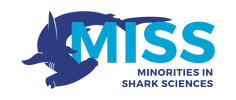
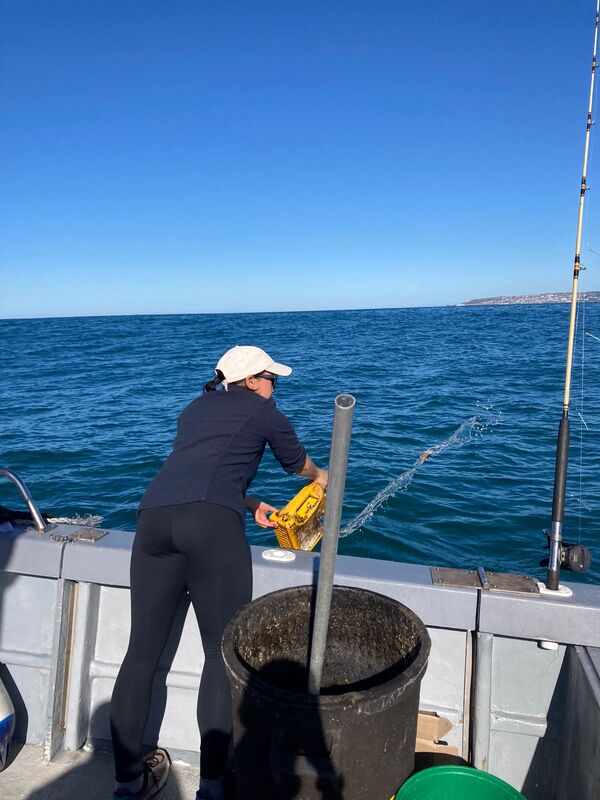
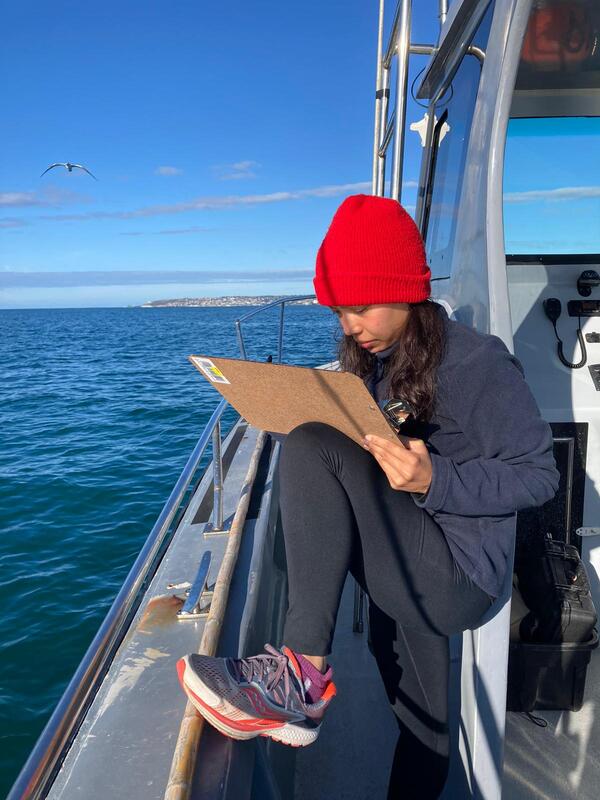
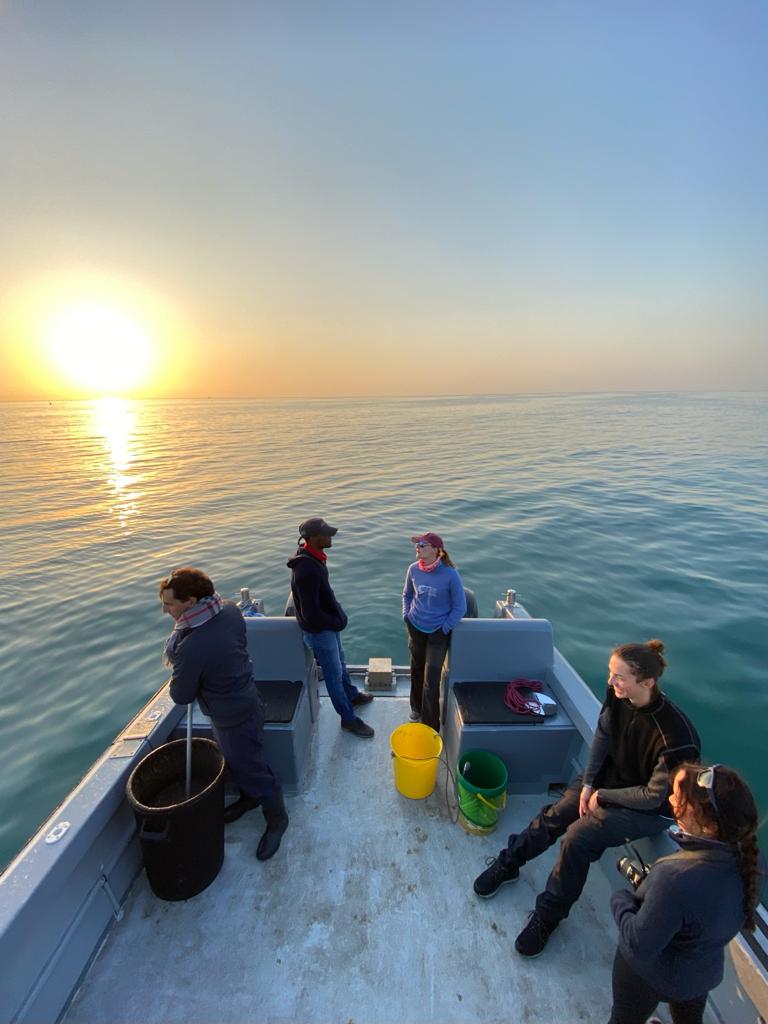
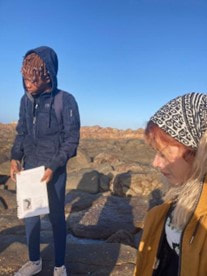
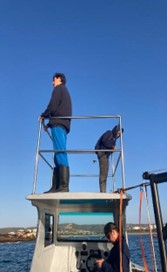
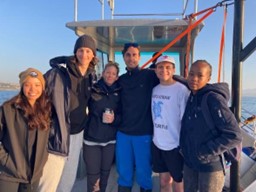
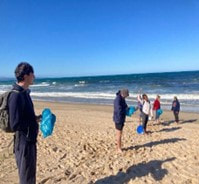
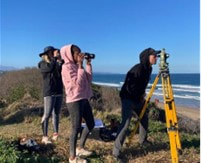
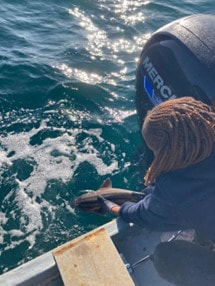
 RSS Feed
RSS Feed
